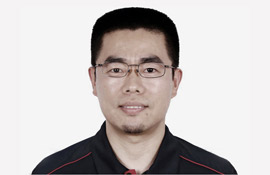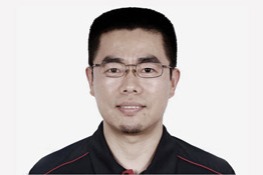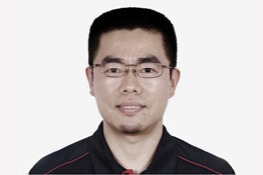Cross that bridge? 船到橋頭自然直
中國日報網(wǎng) 2022-05-10 17:37

Reader question:
Please explain this headline, particularly “that bridge”: We Can Cross That Bridge, Now That We’ve Come to It.
My comments:
We’re not talking about any specific bridge, actually, nothing physical.
First, paraphrase:
Now that the problem is at hand, we can tackle it right away.
“That bridge” refers to any problem to be dealt with, especially sometime in future. The full idiom or proverb is: We’ll cross that bridge when we come to it.
Meaning? Don’t get ahead of yourself too much and worry about something in the distant future.
The reason is obvious. That bridge is, literally, far ahead. You cannot cross that bridge and get to the other side of the river until you arrive at the foot of the bridge.
So, don’t worry about whether it’s easy or difficult to cross that bridge now. Worry about it when you get there. After all, you may not even need to get to the other side of river.
American poet Henry Wadsworth Longfellow (1807-1882) is credited with putting this idea into recorded use. In The Golden Legend (1851), he writes: “Don’t cross the bridge till you come to it, is a proverb old and of excellent wit.”
We don’t know exactly how old that proverb is, but of excellent wit it is, indeed.
Now, media examples of “cross that bridge” in various forms:
1. At an elite private school in Iraq’s autonomous Kurdish region, children learn Turkish and English before Arabic. University students dream of jobs in Europe, not Baghdad. And a local entrepreneur says he doesn’t like doing business elsewhere because areas outside Kurdish control are too unstable.
In the decade since U.S.-led forces invaded Iraq, Kurds have trained their sights toward Turkey and the West, at the expense of ties with the still largely dysfunctional rest of the country.
Aided by an oil-fueled economic boom, Kurds have consolidated their autonomy, increased their leverage against the central government in Baghdad and are pursuing an independent foreign policy often at odds with that of Iraq.
Kurdish leaders say they want to remain part of Iraq for now, but increasingly acrimonious disputes with Baghdad over oil and territory might just push them toward separation.
“This is not a holy marriage that has to remain together,” Falah Bakir, the top foreign policy official in the Kurdistan Regional Government, said of the Kurdish region’s link to Iraq.
A direct oil export pipeline to Turkey, which officials here say could be built by next year, would lay the economic base for independence. For now, the Kurds can’t survive without Baghdad; their region is eligible for 17 percent of the national budget of more than $100 billion, overwhelmingly funded by oil exports controlled by the central government.
Since the war, the Kurds mostly benefited from being part of Iraq. At U.S. prodding, majority Shiites made major concessions in the 2005 constitution, recognizing Kurdish autonomy and allowing the Kurds to keep their own security force when other militias were dismantled. Shiites also accepted a Kurd as president of predominantly Arab Iraq.
Still, for younger Kurds, who never experienced direct rule by Baghdad, cutting ties cannot come soon enough.
More than half the region’s 5.3 million people were born after 1991, when a Western-enforced no-fly zone made Kurdish self-rule possible for the first time by shielding the region against Saddam Hussein. In the preceding years, Saddam’s forces had destroyed most Kurdish villages, killing tens of thousands and displacing many more.
Students at Irbil’s private Cihan University say they feel Kurdish, not Iraqi, and that Iraq’s widespread corruption, sectarian violence and political deadlock are holding their region back.
I want to see an independent Kurdistan, and I don’t want to be part of Iraq,” said Bilend Azad, 20, an architectural engineering student walking with a group of friends along the landscaped campus. “Kurdistan is better than other parts of Iraq. If we stay with them, we will be bad like them, and we won’t be free.”
...
As problems with Baghdad fester, Kurdish officials say their region’s departure from Iraq is inevitable. Many here dream of an independent Kurdistan, made up of parts of Syria, Turkey, Iran and Iraq, home to more than 25 million Kurds.
“As a people, we deserve that,” said Bakir, the foreign policy official. “We want to see that in our lifetime.”
But with key allies such as the U.S. and Turkey opposed to splitting up Iraq, the Kurds say they won’t act with haste or force.
Asked if the Kurdish region would declare independence once it can export oil directly, Bakir said: “We will cross that bridge when we get there. At this time, we are still committed to a democratic, federal, pluralistic Iraq.”
- 10 years after US invasion, Kurds look to the West, AP, March 11, 2013.
2. Golden State Warriors head coach Steve Kerr was asked how difficult it would be to remove Jordan Poole from the starting lineup in favor of Stephen Curry. Kerr seemed hesitant to give a definitive response after Poole’s exceptional performance, stating:
“Yeah, we’ll cross that bridge when we come to it.”
Steve Kerr shared his thoughts on Poole’s performance, who had the highest scoring playoff debut for the Warriors since Wilt Chamberlain.
Kerr stated:
“Kind of what we expected. He’s not afraid of the moment.”
Jordan Poole’s long awaited playoff debut and the return of the Golden State Warriors’ “Big Three” went about as well as Warriors fans could have hoped.
The Warriors beat the Denver Nuggets 123-107, in what was a phenomenal showing from young point guard Jordan Poole. Poole led the Warriors to a comfortable victory, dropping 30 points in his much anticipated playoff debut.
- Steve Kerr: ‘Yeah, we’ll cross that bridge when we come to it’, ServeGame.org, April 17, 2022.
3. WORLD snooker champ Ronnie O’Sullivan’s eldest daughter will never let him meet his grandchild.
Taylor-Ann Magnus, 25, said her dad is not part of her life and would not want him around her three-year-old girl Zarah.
And she said she will only tell her about her famous granddad if she has to.
Taylor-Anne has only met him a handful of times after he dated her mum Sally-Ann Magnus for two years in the 1990s.
They last saw each other when she is 17 or 18. She told the Mirror: “I wouldn’t want someone like that around me and my child.
“I was 17 or 18 the last time I saw him and I forgave him within myself, although that doesn’t excuse what he did.
“The last eight years I’ve been quite happy. I’ve accepted he won’t be there and I’m OK with that.
“But since I had my daughter, I’ve thought ‘I really don’t want that person in my life’.”
She said keeping it from her will be difficult, especially when she goes to school if people approach her after seeing something online.
She added: “When she gets older I might tell her as a pre-warning. I will cross that bridge when I come to it.”
It follows Ronnie’s record-equalling seventh title win against Judd Trump last week, bagging £500,000.
He hugged his younger children Lily and Ronnie Jr, both from a relationship with Jo Langley, after the victory.
Taylor-Anne, of Romford, Essex, said she does not watch or follow him and neither wants or needs money from her dad, who is worth an estimated £32million.
- I won’t let my dad Ronnie O’Sullivan see my daughter – I don’t watch him play, UKNewsToday.com, May 8, 2022.
本文僅代表作者本人觀點,與本網(wǎng)立場無關(guān)。歡迎大家討論學術(shù)問題,尊重他人,禁止人身攻擊和發(fā)布一切違反國家現(xiàn)行法律法規(guī)的內(nèi)容。
About the author:

Zhang Xin is Trainer at chinadaily.com.cn. He has been with China Daily since 1988, when he graduated from Beijing Foreign Studies University. Write him at: zhangxin@chinadaily.com.cn, or raise a question for potential use in a future column.
(作者:張欣 編輯:丹妮)

















 英語點津微信
英語點津微信 雙語小程序
雙語小程序